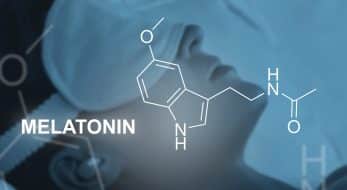Vitamin D: The Coming Nutritional Superstar
Vitamin D – the fat-soluble vitamin primarily obtained through sun exposure – is getting superstar attention.
The beneficial results from recent research and testing of vitamin D are astounding. Originally prescribed only by nutritionists for maintaining bone health and overshadowed by recent health fads like pomegranate juice and the açai berry, recent research suggests vitamin D can decrease the risk of common killers that include cancer, cardiovascular disease, diabetes, and pneumonia. In fact, one Finnish study followed 1200 children for 30 years and found the children who took a 2000 IU vitamin D every day had an 80% reduced risk of developing Type 1 diabetes.
Who is at Risk for Vitamin D Deficiency?
Despite the many benefits, an estimated 75% of Americans are vitamin D deficient. Populations close to the equator appear less deficient than those further away and darker skin requires more sun exposure to synthesize vitamin D.
Prolonged deficiency of this nutrient can have serious consequences. A report from Canada found the cost in human mortality would fall by 37,000 deaths annually if Canadians increased vitamin D levels.
What is the Optimum Vitamin D Dosage?
Scientists still can’t agree on an optimum vitamin D dose. For years, the Federal Drug Administration has recommended 200 International Units (IU) of vitamin D per day from infancy to age 50. Most researchers agree this number is outdated and speculate between 1000 and 2000 IU per day would be a beneficial daily dose.
For more detailed information about vitamin D research and links to vitamin D-related articles, visit our Vitamin D resource page.
Sources:
Brody, Jane E. “What Do You Lack? Probably Vitamin D.” The New York Times – Breaking News, World News & Multimedia. 26 July 2010. Web. 28 July 2010.
Elina, Hypponen. “Intake of Vitamin D and Risk of Type I Diabetes: A Birth-Cohort Study.” Search Journal. The Lancet, 3 Nov. 2001. Web. 28 July 2010.
Grant, W. B. “An Estimate of the Economic Burden and Premature Deaths Due to Vitamin D Deficiency in Canada.” PubMed.com. U.S. National Library of Medicine National Institutes of Health, 29 Mar. 2010. Web. 28 July 2010.
“Vitamin D ‘reduces Risk of Diabetes’” BBC News – Home. 2 Nov. 2001. Web. 28 July 2010.
Recent Posts
-
Dose, Joint Health, Omega-3
Omega-3 & Pain Relief: Finding the Best Strategy
Are you one among the 1 in 5 Americans grappling with chronic pain, as reported by the CDC [1]? If the thought of traditional pain medications and their potential side...3 months ago -
Eye Health, Omega-3
The Startling Link Between Skin Care and Eye Health
Dry eye complaints are on the rise worldwide. Many risk factors – including aging and increased computer use – help explain the increase. But there's another driver few people know...5 months ago -
Heart Health
Does Taking Fish Oil Lower Cholesterol?
Many people believe that incorporating omega-3s into their diet will solve their cholesterol woes. But the truth is much more nuanced; it's not as simple as taking a daily fish...1 year ago -
Immune Health, Sleep
Melatonin & COVID-19: Can This ‘Sleep Hormone’ Help?
It started with a runny nose and a slight cough. But when his 72-year-old wife tested positive for COVID-19, he got concerned. “Is there any research suggesting the supplements we...2 years ago -
Full-Spectrum Fish Oil, Omega-3
Is It Good to Store Fish Oil in the Freezer?
Fish oil is a great source of the omega-3 fatty acids we all need for good health. It’s also highly perishable. Consuming rancid fish oil can have negative health implications....2 years ago -
Omega-3
Our Favorite Omega-3 Fish Oil Benefits
Omega-3 fish oil certainly has a reputation for delivering a plethora of incredible benefits. And it’s true! Omega-3 fatty acids have been studied for a broad range of health conditions....2 years ago








